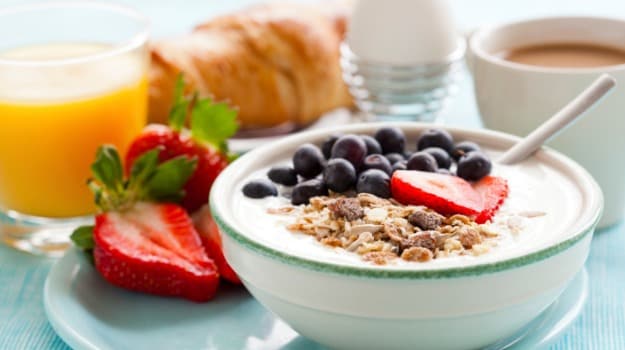Metabolism basically refers to all those chemical processes that are essential for basic bodily functions. Simple activities like breathing and digesting food require energy and it is determined by your Basic Metabolic Rate (BMR), which I'm sure your doctors and nutritionists tell you to pay a great deal of attention to.
Hence, you are advised to lose or gain weight depending on your BMR. Unknowingly, we make some common diet mistakes that slow our metabolism. It can be anything, from skipping your breakfast or missing out on some essential nutrients from your daily diet. Here are some diet mistakes you need to stop making -
(This Diet Reduces Weight and Controls Cholesterol)
1. You Skip or Eat the Wrong Breakfast
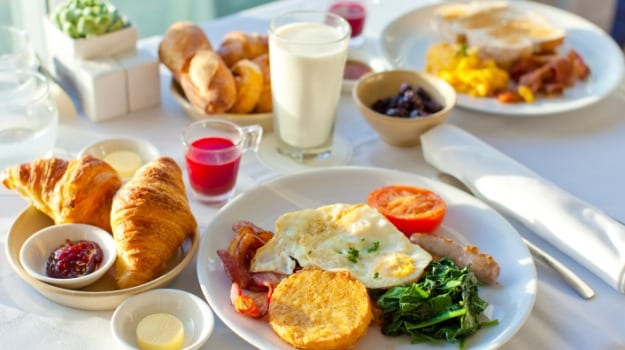
Breakfast - typically considered the most important meal of the day - yields several health benefits, including improved concentration and increased energy. Eating a healthy breakfast also aids in weight management by helping to avert cravings and ravenous hunger before lunch. In addition, breakfast influences your metabolism, which can further promote weight loss.
Starting your day with junk food negates many of the benefits that you gain from increasing your metabolism. In contrast, making healthy choices for breakfast can help a great deal for the rest of the day. Fruits, vegetables, low-fat dairy, whole grains and lean meats are smart choices.
2. Your Diet Lacks Enough Protein
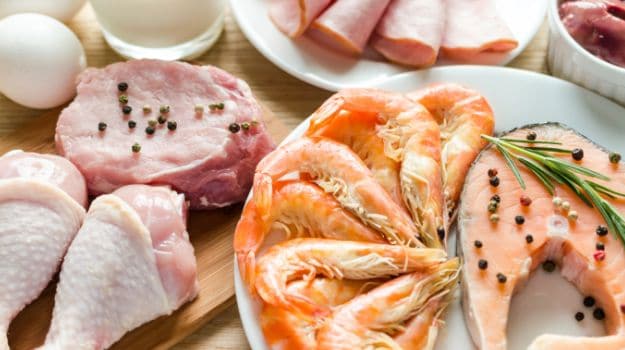
Many protein rich foods like eggs for instance are known to be fat burning foods as well. Including proteins is an important part of the diet and not including them definitely slows down metabolism. Protein in particular stimulates the 'thermic effect' of food, which means that the body burns more energy processing dietary protein than it does carbohydrates or fats. The act of digesting protein therefore boosts your metabolism more than other nutrients. Diets high in protein may also make you feel full faster, thereby helping you eat less.
Tip: Having at least 2 servings of protein rich foods like milk or yoghurt can do the trick!
(6 Tips That'll Help You Stick to Your Diet Plans)
3. Not Consuming Sufficient Water
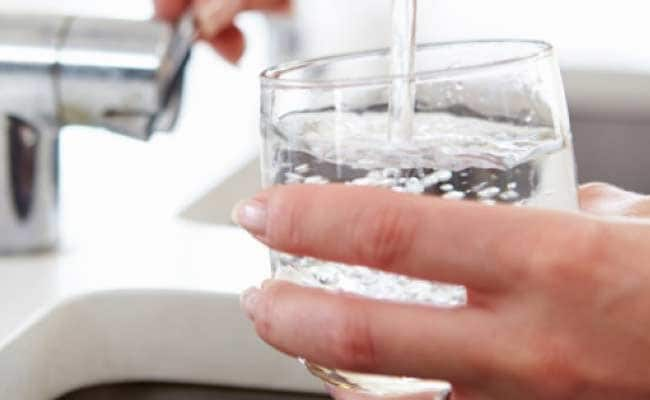
Water is an essential nutrient, and an important part of healthy eating. The body needs water to perform a number of vital functions. It keeps the body's delicate electrolyte balance intact and carries nutrients to the cells so that they can function properly. Moreover, it's indispensable to maintain adequate energy levels for your daily activities. A speedier metabolism could translate to a thinner you and it's interesting to know that drinking enough water can boost your body's ability to burn fat. It increases the metabolic rate by almost 30 percent, according to many researches. Also, having 1-2 glasses of water before a meal can fill you up naturally and make you eat less.
(Diet drinks do not guarantee weight loss)
4. Consuming White Carbs
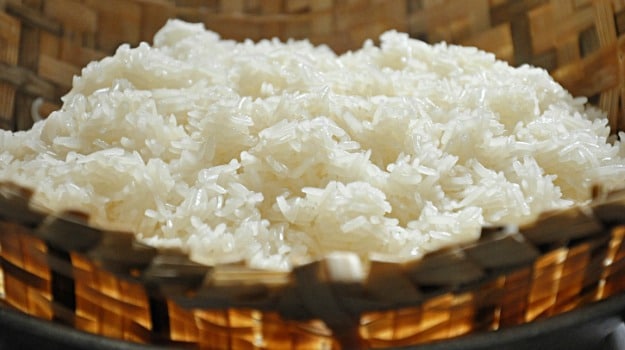
Boost your fibre intake by switching to whole wheat bread, pasta, and eating more fruits and vegetables. White carbs are the worst foods for weight loss, slowing down metabolism rates massively. Surprisingly, most of them are stored as fats. So, cut down on that white rice and specially, the extra sugar.
But that doesn't mean you should eliminate carbs completely, especially if you exercise regularly. During exercise, your muscles demand glycogen from carbohydrates that stores in your body. If you don't consume enough carbohydrates, your glycogen levels will be too low and you won't have the energy to exercise as intensely. So make the right choice!
(Why Eating Diet Food Isn't Enough)
5. A Strict 'No' to Caffeine
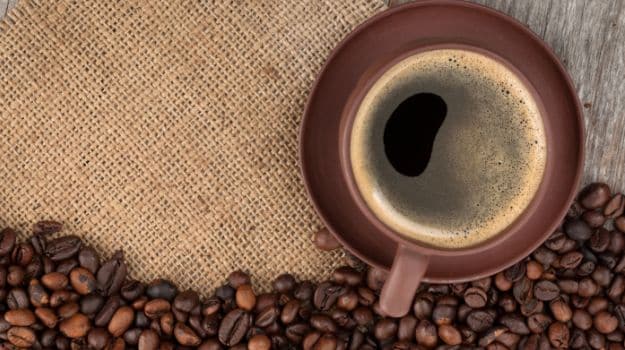
Beyond just causing the jitters, coffee can also speed up metabolism, some say up to 10 percent! Giving it up completely isn't such a great option, for its central nervous stimulating property boosts metabolism impressively.
It's the caffeine that gives metabolism a boost by reviving bodily functions. One cup of basic black, which has between 108 and 135 mg of caffeine, can speed heart rate, enhance alertness, and relax the air passages. If you're not a coffee drinker, even a cup of hot tea works just the same way.
(This Diet May Help You Live Longer)
6. Not Eating the Right Munchies
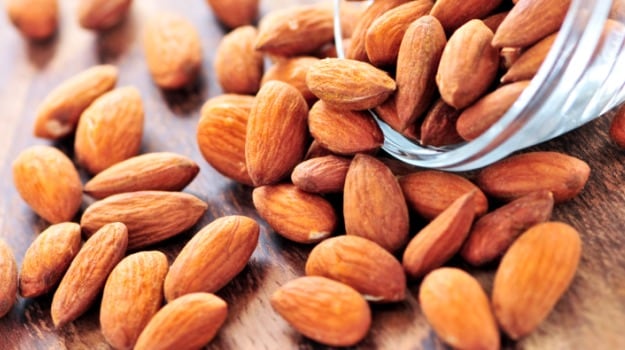
Research suggests that, like a charge for a battery, eating about three meals a day with two or three snacks in between can make your metabolism more efficient. Be a smart snacker and choose dry fruits like walnuts and almonds instead of those chocolate cookies. You can even snack on fruits such as oranges or strawberries. Moreover, they help you meet your daily fibre intake that also is a boost for your metabolism.
(6 Diet Tips for Youthful Skin)
7. The Crucial Vitamin D and Iron
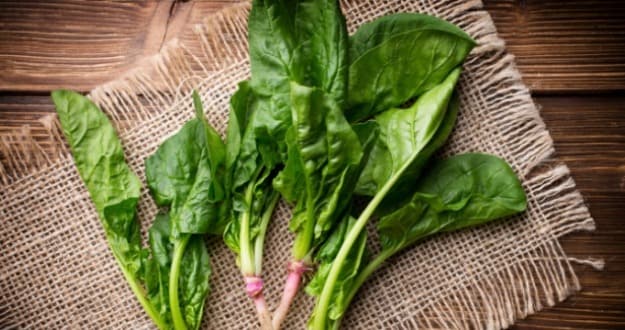
Vitamin D is extremely important in preserving muscle tissue and subsequently helps in burning fat. A lack of vitamin D is known to directly affect metabolism and slows down functioning of muscles in the body. To include it in your diet, cook up some salmon or tuna. Starting your day with some multi-grain cereals or a good omelette can notch up that Vitamin D as well.
Iron is crucial in carrying oxygen to various parts of the body, including your muscles. Your muscles need oxygen to burn fat and iron aids in that. Lack of iron reduces oxygen supply and slows down functioning of body organs, thereby slowing down metabolic rates. Include foods like dark leafy greens like spinach or some seafood like shellfish. Even lean meats and nuts are good sources.
8. You Consume Alcohol with Your Meals

Having alcohol with your diet can seriously affect metabolism, as you can end up consuming more calories than you actually intended to in the first place. Alcohol reduces the body's fat burning ability by almost 75 percent, slowing metabolism rapidly. So, skip that second cocktail as much as you can.
(4 Things You Must Know About a Detox Diet)







